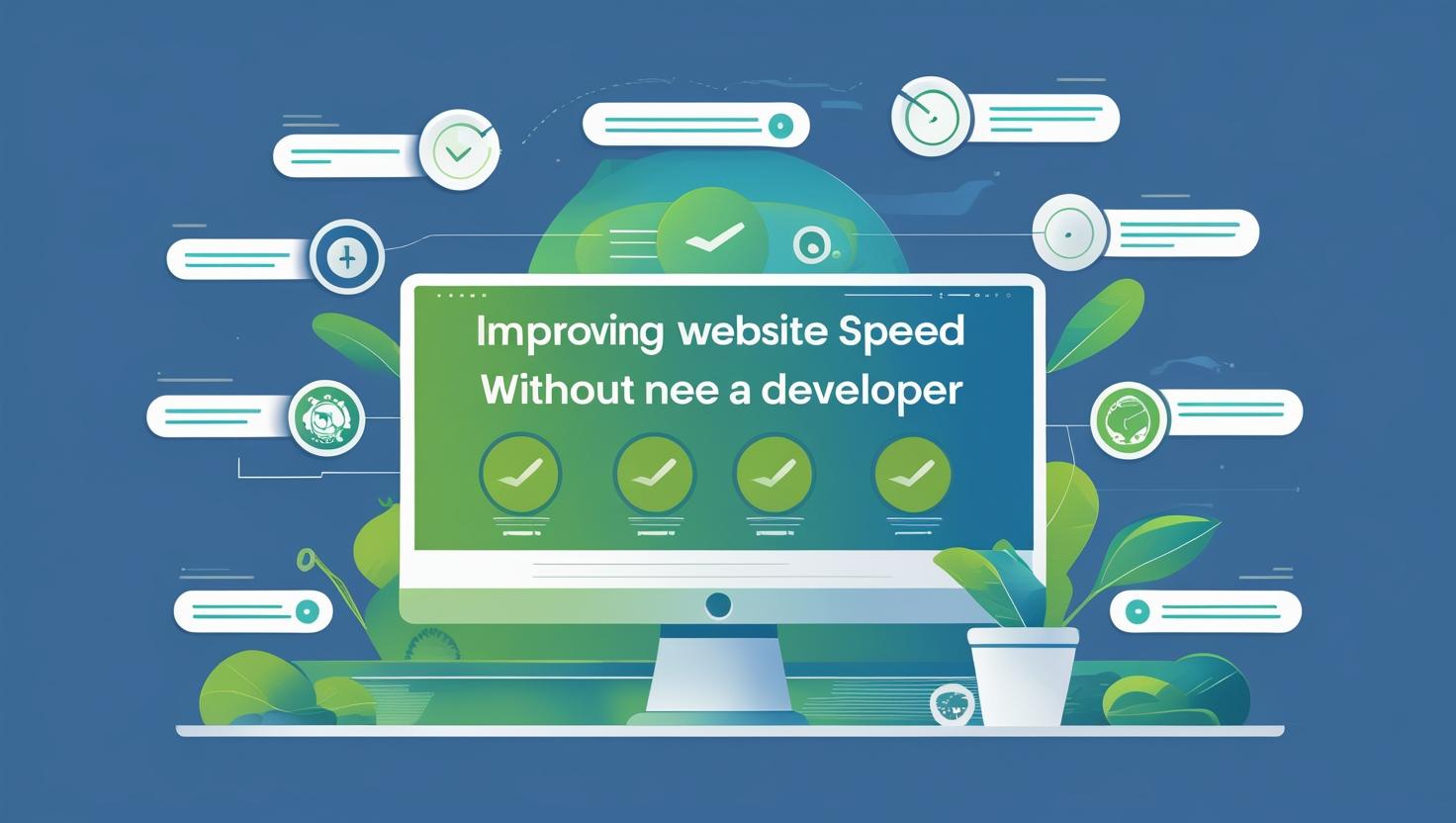
- June 1, 2025
- Performance & Speed
How to Improve Your Website Speed Without a Developer
A slow website can cost you traffic, conversions, and search engine rankings. In fact, Google considers page speed a ranking factor, and users expect websites to load in under 3 seconds. The good news? You don’t need to hire a developer to speed up your site. Here’s how to improve your website speed on your own, even with limited tech skills.
Why Website Speed Matters
Impact on SEO and User Experience
Slow-loading websites lead to high bounce rates, lower engagement, and reduced sales. Search engines penalize slow sites, which can hurt your rankings on Google and other platforms.
Simple Ways to Speed Up Your Website Without Coding
1. Optimize Your Images
Large images are one of the top causes of slow websites. Fortunately, optimizing them is easy.
How to do it:
-
Use free tools like TinyPNG or ImageCompressor to reduce file size.
-
Choose the correct file format (JPEG for photos, PNG for graphics).
-
Upload images at the exact size needed—don’t rely on the browser to resize them.
2. Use a Fast, Lightweight Theme
If you’re using WordPress or another CMS, your theme plays a big role in speed.
What to look for:
-
Themes labeled as “lightweight” or “optimized for speed.”
-
Avoid themes overloaded with animations and scripts.
Free options: Astra, GeneratePress, or Neve are fast and beginner-friendly.
3. Install a Caching Plugin
Caching saves copies of your site’s pages so they load faster for repeat visitors.
Free caching plugins:
-
WP Fastest Cache
-
W3 Total Cache
-
LiteSpeed Cache (if your hosting supports it)
Just install, activate, and follow simple setup guides—no coding required.
4. Minimize Plugins and Scripts
Too many plugins can slow your site down.
What to do:
-
Deactivate and delete unused plugins.
-
Replace heavy plugins with lighter alternatives.
-
Avoid using multiple plugins that do the same job.
5. Enable Browser Caching and Compression
You can use tools to turn on GZIP compression and browser caching without touching code.
How to do it:
-
Use an optimization plugin like Autoptimize or WP Optimize.
-
These tools compress CSS, JavaScript, and HTML files automatically.
6. Choose a Good Hosting Provider
Cheap shared hosting can slow your site, no matter how much you optimize.
Tip: Even affordable hosts like SiteGround, Hostinger, or GreenGeeks offer fast servers and easy upgrades.
Bonus Tip: Test and Monitor Your Speed
Always measure your results before and after making changes.
Free tools to use:
-
Google PageSpeed Insights
-
GTmetrix
-
Pingdom Tools
These tools will show you what’s slowing down your site and suggest specific fixes.
Final Thoughts
You don’t need to be a developer to make your website faster. With a few simple tools and changes, you can improve speed, user experience, and SEO performance—all without writing a single line of code.









